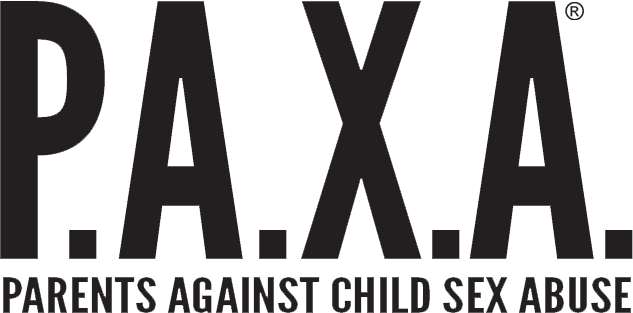
Programs & Initiatives
P.A.X.A. Child Sex Abuse 360 Programs
The first stage in the combat to end child sexual abuse is to know the facts. We aim to educate based on facts to be a part of the solution. P.A.X.A. is a platform to educate parents and adults about predators and their grooming tactics, along with symptoms the child may be experiencing. We also developed an educational component for children with informative guides that speaks to them and the entire family. If sexual abuse is uncovered, P.A.X.A. educates parents how to report the crime without fear and how to help their child and the entire family heal. We focus on a 360 approach if the child is impacted, the entire family and those surrounding the child is affected. P.A.X.A. uses a 4-Step process through “Uncovering” the “I didn’t know” to help parents and adults understand their role in protecting children from sexual abuse:
The Conversations Program
This component of the P.A.X.A. Child Sex Abuse Program is primarily focused on several conversations to focus on prevention measures to prohibit child sexual abuse. This program is held with parents and/or adults in positions working around children. We hold the program quarterly via YouTube for parents to provide the platform for anyone to listen to our ongoing series. Throughout each one of our programs P.A.X.A. uses our 4-step uncovering process to help parents, adults or children uncover how to identify tactics, patterns, and behaviors.
Digital Education Program
P.A.X.A.’s educational videos are geared towards children ages 6-14 years old with a primary focus on language, graphics, images, and situations that children would recognize. The program intends to educate, inform and provide support to children. For example, a video might define inappropriate behavior by adults or older children and provide guidance on what to say, who to tell, how it’s never right to keep secrets from parents.
P.A.X.A. Pointers Curriculum
P.A.X.A. Pointers is a parent-focused curriculum designed to address "blind spots" that occur when parents trust someone to take care of their child. Child sexual abuse often operates within a tragic paradox: most parents brush off red-flag behavior and reduce scrutiny on "people that they trust." The curriculum makeup includes video, one-pagers, and the P.A.X.A. engagement activities which equip parents with language to connect with their children on the sensitive topic of sexual abuse.
Live Stream Events & P.A.X.A. Social Media and Campaign Initiatives







